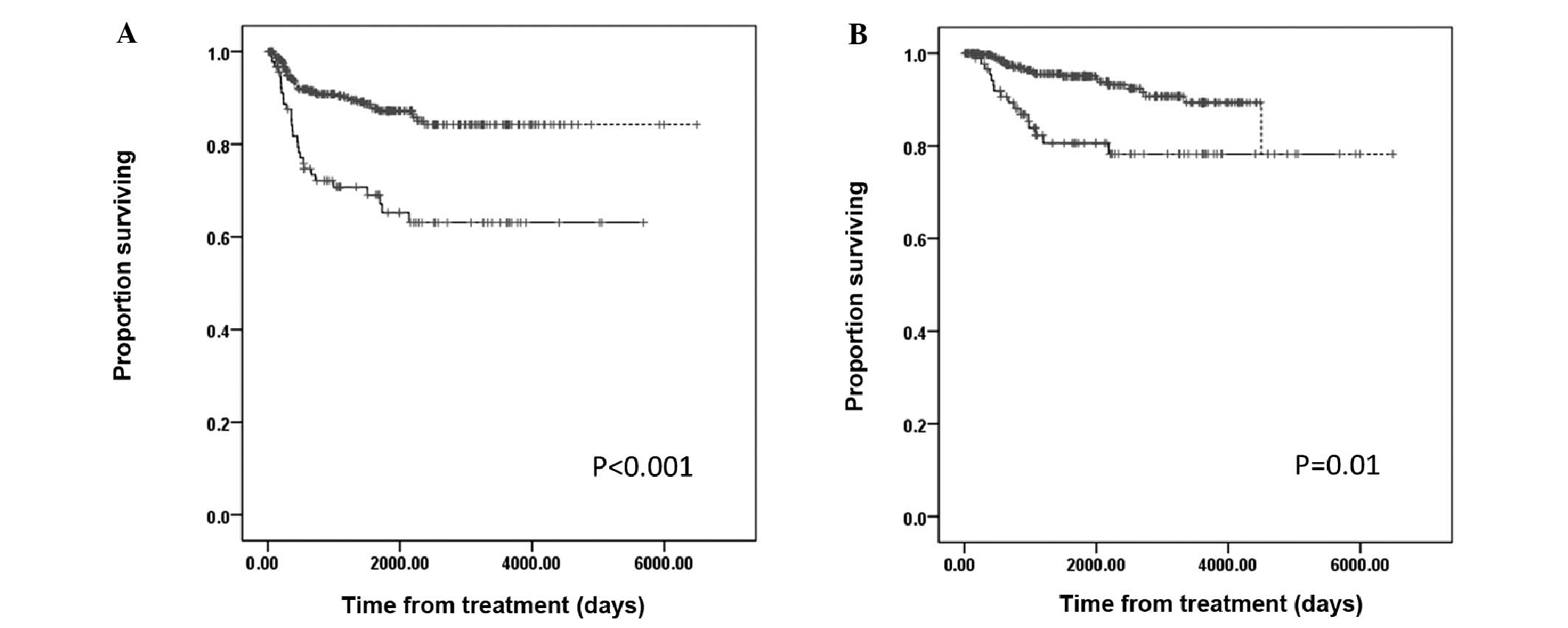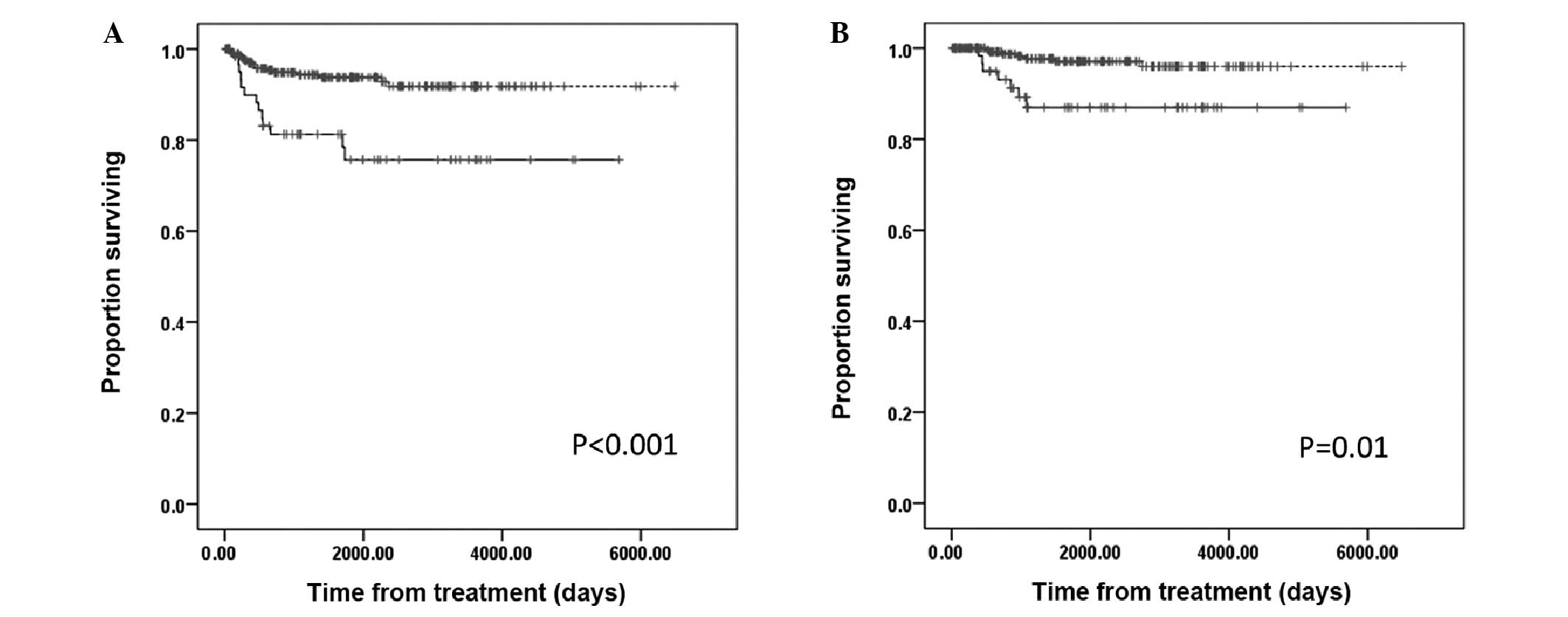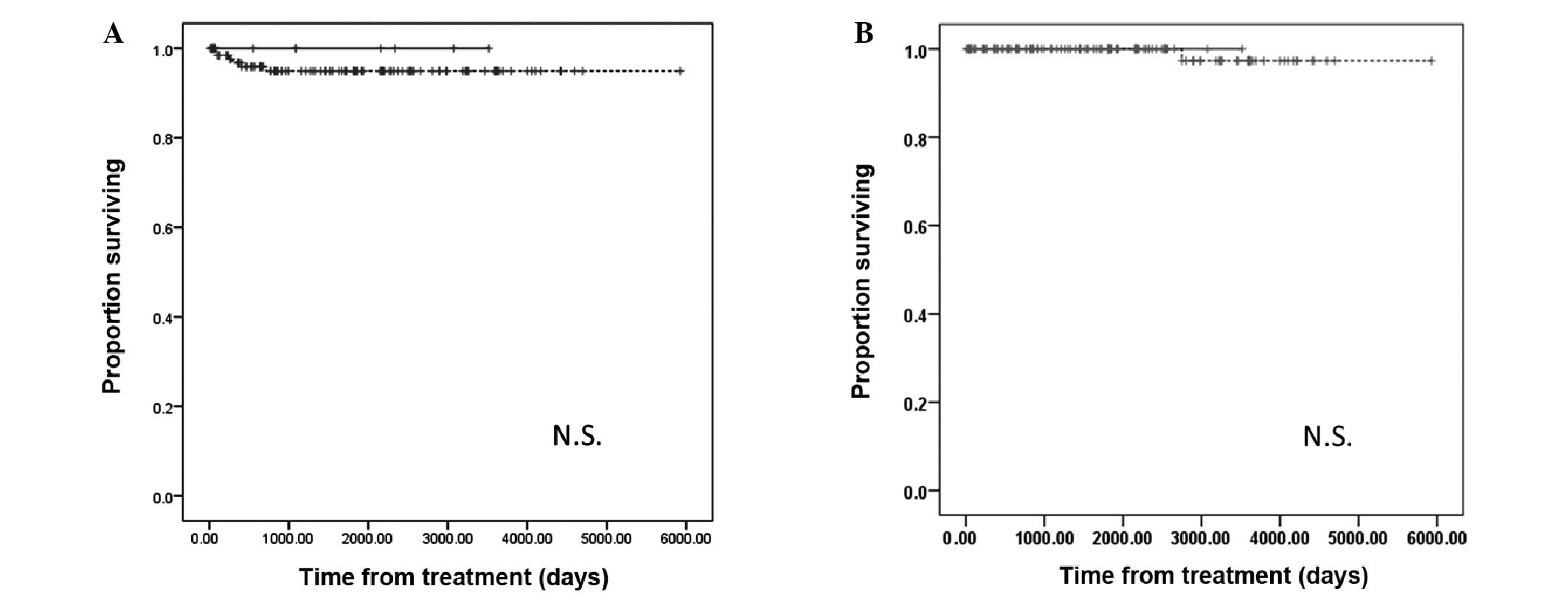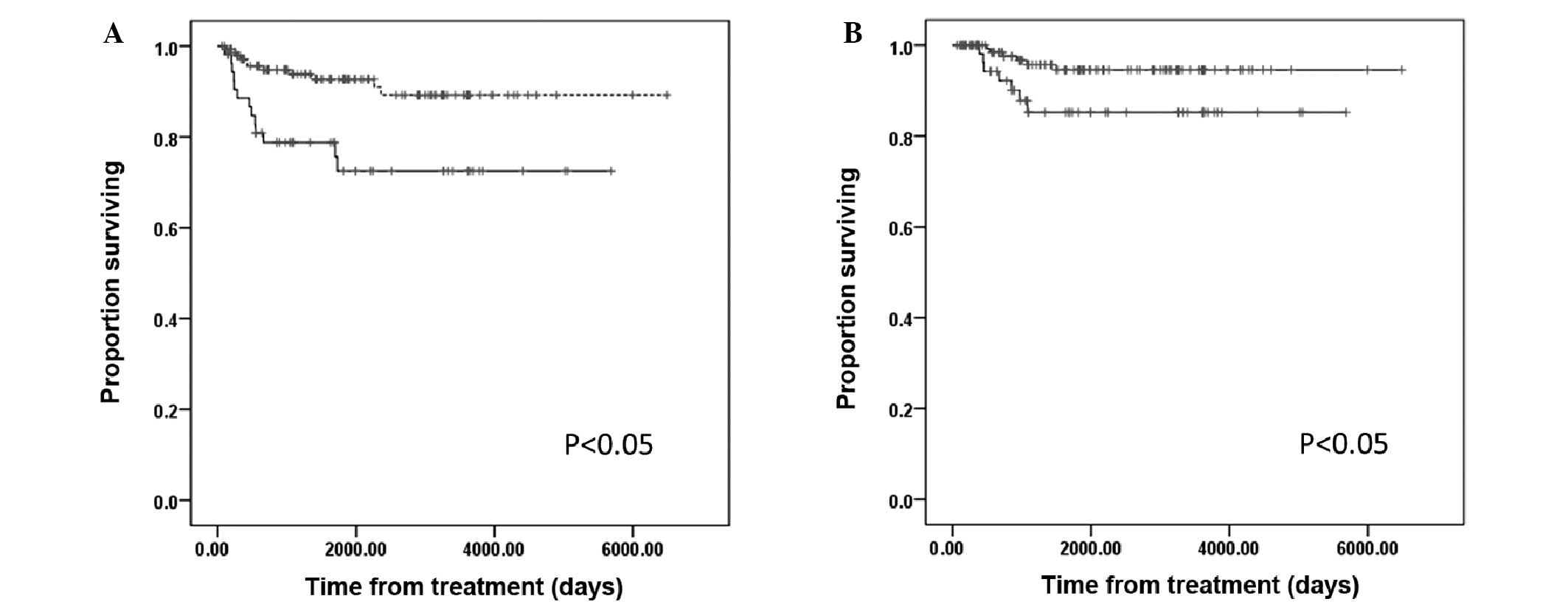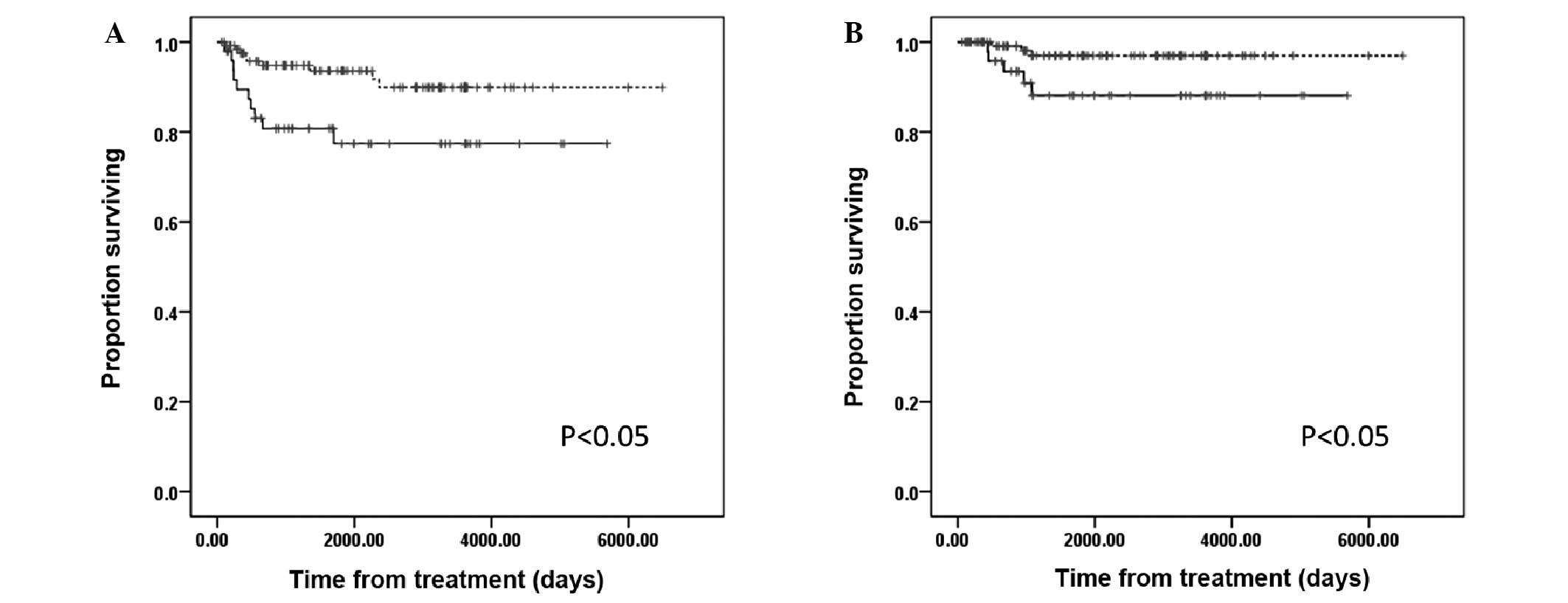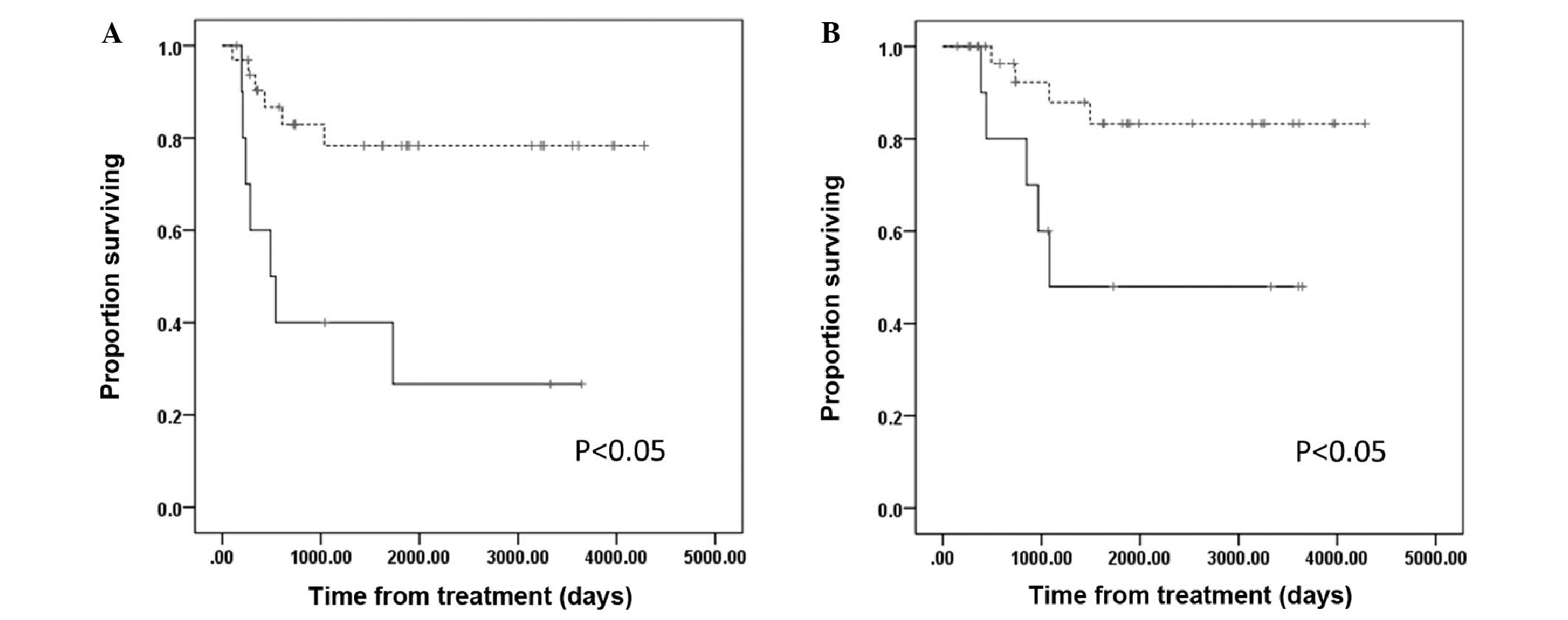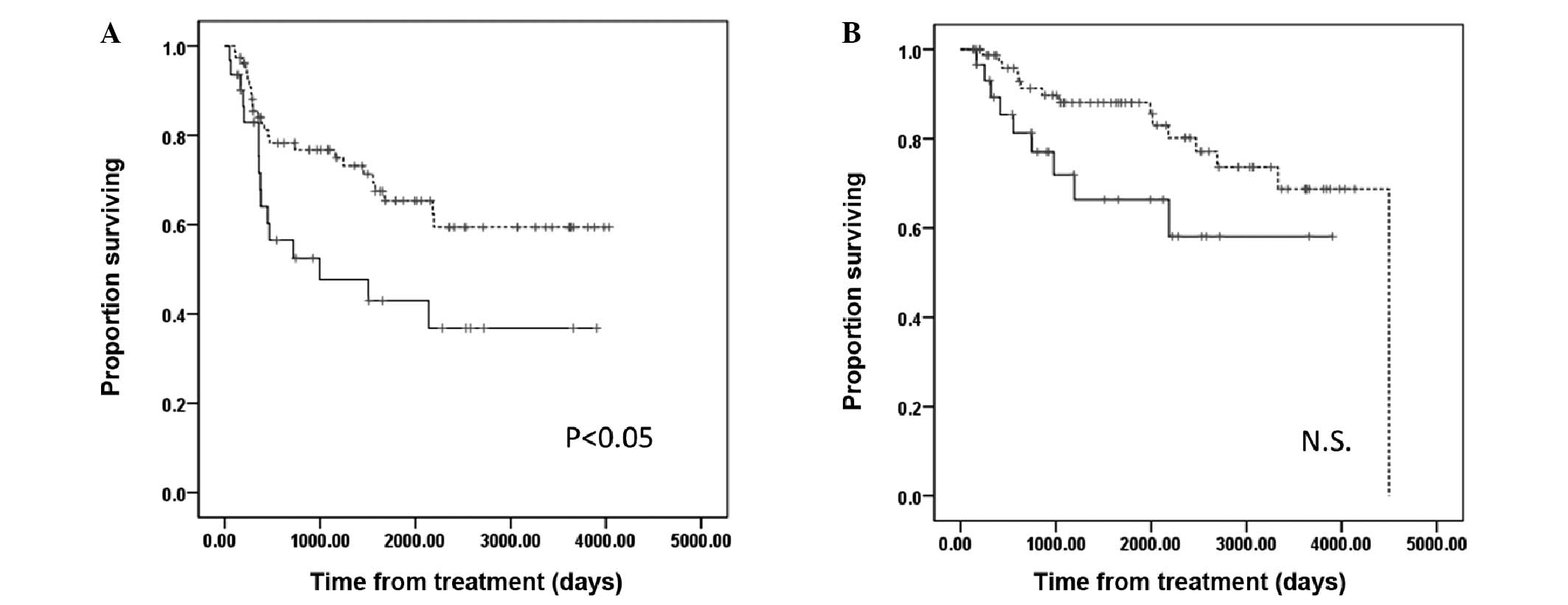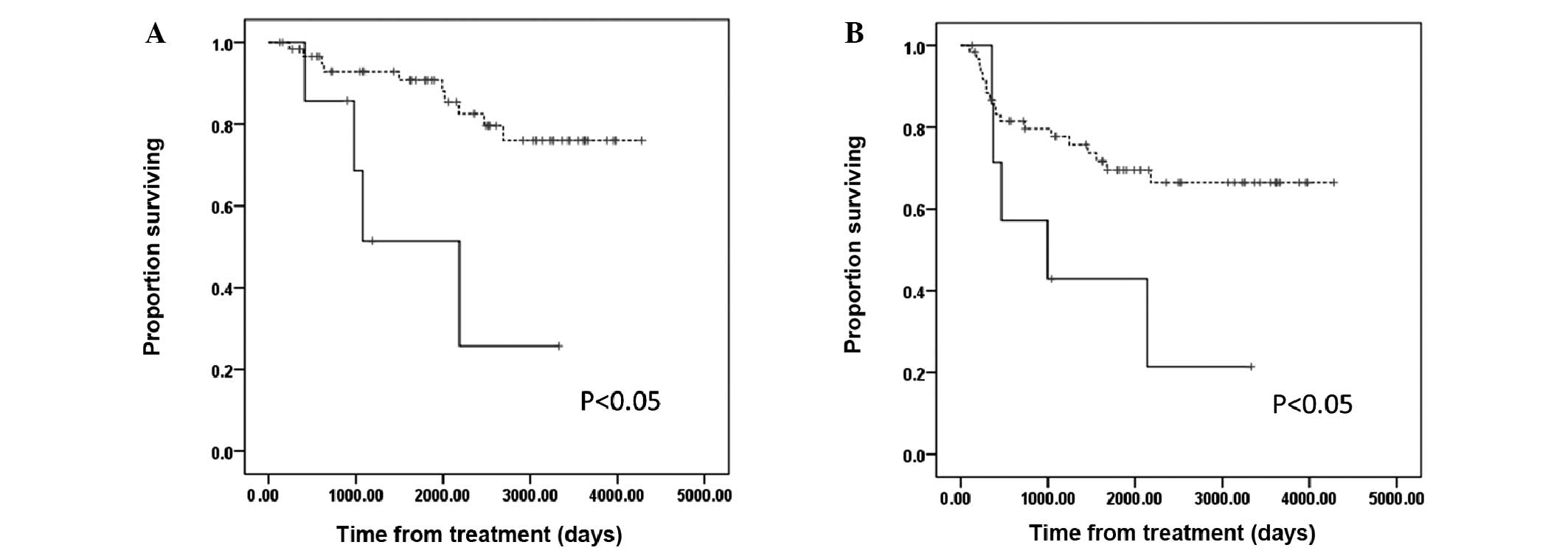|
1
|
Jemal A, Bray F, Center MM, Ferlay J, Ward
E and Forman D: Global cancer statistics. CA Cancer J Clin.
61:69–90. 2011. View Article : Google Scholar
|
|
2
|
Smith HO, Tiffany MF, Qualls CR and Key
CR: The rising incidence of adenocarcinoma relative to squamous
cell carcinoma of the uterine cervix in the United States - a
24-year population-based study. Gynecol Oncol. 78:97–105. 2000.
|
|
3
|
Schorge JO, Hossein Saboorian M, Hynan L
and Ashfaq R: ThinPrep detection of cervical and endometrial
adenocarcinoma: a retrospective cohort study. Cancer. 96:338–343.
2002. View Article : Google Scholar : PubMed/NCBI
|
|
4
|
McCluggage WG and Jenkins D: p16
immunoreactivity may assist in the distinction between endometrial
and endocervical adenocarcinoma. Int J Gynecol Pathol. 22:231–235.
2003. View Article : Google Scholar : PubMed/NCBI
|
|
5
|
Negri G, Egarter-Vigl E, Kasal A, Romano
F, Haitel A and Mian C: p16INK4a is a useful marker for the
diagnosis of adenocarcinoma of the cervix uteri and its precursors:
an immunohistochemical study with immunocytochemical correlations.
Am J Surg Pathol. 27:187–193. 2003. View Article : Google Scholar : PubMed/NCBI
|
|
6
|
Schorge JO, Knowles LM and Lea JS:
Adenocarcinoma of the cervix. Curr Treat Options Oncol. 5:119–127.
2004. View Article : Google Scholar
|
|
7
|
Nakanishi T, Ishikawa H, Suzuki Y, Inoue
T, Nakamura S and Kuzuya K: A comparison of prognoses of pathologic
stage Ib adenocarcinoma and squamous cell carcinoma of the uterine
cervix. Gynecol Oncol. 79:289–293. 2000. View Article : Google Scholar : PubMed/NCBI
|
|
8
|
Brand E, Berek JS and Hacker NF:
Controversies in the management of cervical adenocarcinoma. Obstet
Gynecol. 71:261–269. 1988.PubMed/NCBI
|
|
9
|
Goodman HM, Buttlar CA, Niloff JM, Welch
WR, Marck A, Feuer EJ, Lahman EA, Jenison EL and Knapp RC:
Adenocarcinoma of the uterine cervix: prognostic factors and
patterns of recurrence. Gynecol Oncol. 33:241–247. 1989. View Article : Google Scholar : PubMed/NCBI
|
|
10
|
Kim SM, Choi HS and Byun JS: Overall
5-year survival rate and prognostic factors in patients with stage
IB and IIA cervical cancer treated by radical hysterectomy and
pelvic lymph node dissection. Int J Gynecol Cancer. 10:305–312.
2000.
|
|
11
|
Park JY, Kim DY, Kim JH, Kim YM, Kim YT
and Nam JH: Outcomes after radical hysterectomy in patients with
early-stage adenocarcinoma of uterine cervix. Br J Cancer.
102:1692–1698. 2010. View Article : Google Scholar
|
|
12
|
Grisaru D, Covens A, Chapman B, Shaw P,
Colgan T, Murphy J, DePetrillo D, Lickrish G, Laframboise S and
Rosen B: Does histology influence prognosis in patients with
early-stage cervical carcinoma? Cancer. 92:2999–3004. 2001.
View Article : Google Scholar : PubMed/NCBI
|
|
13
|
Ayhan A, Al RA, Baykal C, Demirtas E, Yuce
K and Ayhan A: A comparison of prognoses of FIGO stage IB
adenocarcinoma and squamous cell carcinoma. Int J Gynecol Cancer.
14:279–285. 2004. View Article : Google Scholar : PubMed/NCBI
|
|
14
|
Lee KB, Lee JM, Park CY, Lee KB, Cho HY
and Ha SY: What is the difference between squamous cell carcinoma
and adenocarcinoma of the cervix? A matched case-control study. Int
J Gynecol Cancer. 16:1569–1573. 2006. View Article : Google Scholar : PubMed/NCBI
|
|
15
|
Fregnani JH, Soares FA, Novik PR, Lopes A
and Latorre MR: Comparison of biological behavior between
early-stage adenocarcinoma and squamous cell carcinoma of the
uterine cervix. Eur J Obstet Gynecol Reprod Biol. 136:215–223.
2008. View Article : Google Scholar : PubMed/NCBI
|
|
16
|
Kasamatsu T, Onda T, Sawada M, Kato T,
Ikeda S, Sasajima Y and Tsuda H: Radical hysterectomy for FIGO
stage I–IIB adenocarcinoma of the uterine cervix. Br J Cancer.
100:1400–1405. 2009.
|
|
17
|
Treatment guidelines for cervical cancer.
Kanehara & Co., Ltd.; Japan Society of Gynecologic Oncology, .
Tokyo, Japan: 2007, (In Japanese).
|
|
18
|
Hopkins MP and Morley GW: A comparison of
adenocarcinoma and squamous cell carcinoma of the cervix. Obstet
Gynecol. 77:912–917. 1991.PubMed/NCBI
|
|
19
|
Harrison TA, Sevin BU, Koechli O, Nguyen
HN, Averette HE, Penalver M, Donato DM and Nadji M: Adenosquamous
carcinoma of the cervix: prognosis in early stage disease treated
by radical hysterectomy. Gynecol Oncol. 50:310–315. 1993.
View Article : Google Scholar : PubMed/NCBI
|
|
20
|
Anton-Culver H, Bloss JD, Bringman D,
Lee-Feldstein A, DiSaia P and Manetta A: Comparison of
adenocarcinoma and squamous cell carcinoma of the uterine cervix: a
population-based epidemiologic study. Am J Obstet Gynecol.
166:1507–1514. 1992. View Article : Google Scholar : PubMed/NCBI
|
|
21
|
Eifel PJ, Burke TW, Morris M and Smith TL:
Adenocarcinoma as an independent risk factor for disease recurrence
in patients with stage IB cervical carcinoma. Gynecol Oncol.
59:38–44. 1995. View Article : Google Scholar : PubMed/NCBI
|
|
22
|
Kleine W, Rau K, Schwoeorer D and
Pfleiderer A: Prognosis of the adenocarcinoma of the cervix uteri:
a comparative study. Gynecol Oncol. 35:145–149. 1989. View Article : Google Scholar : PubMed/NCBI
|
|
23
|
Moberg PJ, Einhorn N, Silfversward C and
Soderberg G: Adenocarcinoma of the uterine cervix. Cancer.
57:407–410. 1986. View Article : Google Scholar : PubMed/NCBI
|
|
24
|
Alvarez RD, Soong SJ, Kinney WK, Reid GC,
Schray MF, Podratz KC, Morley GW and Shingleton HM: Identification
of prognostic factors and risk groups in patients found to have
nodal metastasis at the time of radical hysterectomy for
early-stage squamous carcinoma of the cervix. Gynecol Oncol.
35:130–135. 1989. View Article : Google Scholar : PubMed/NCBI
|
|
25
|
Soisson AP, Soper JT, Clarke-Pearson DL,
Berchuck A, Montana G and Creasman WT: Adjuvant radiotherapy
following radical hysterectomy for patients with stage IB and IIA
cervical cancer. Gynecol Oncol. 37:390–395. 1990. View Article : Google Scholar : PubMed/NCBI
|
|
26
|
Landoni F, Maneo A, Colombo A, Placa F,
Milani R, Perego P, Favini G, Ferri L and Mangioni C: Randomised
study of radical surgery versus radiotherapy for stage Ib-IIa
cervical cancer. Lancet. 350:535–540. 1997. View Article : Google Scholar : PubMed/NCBI
|















